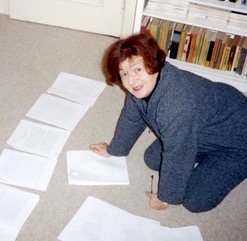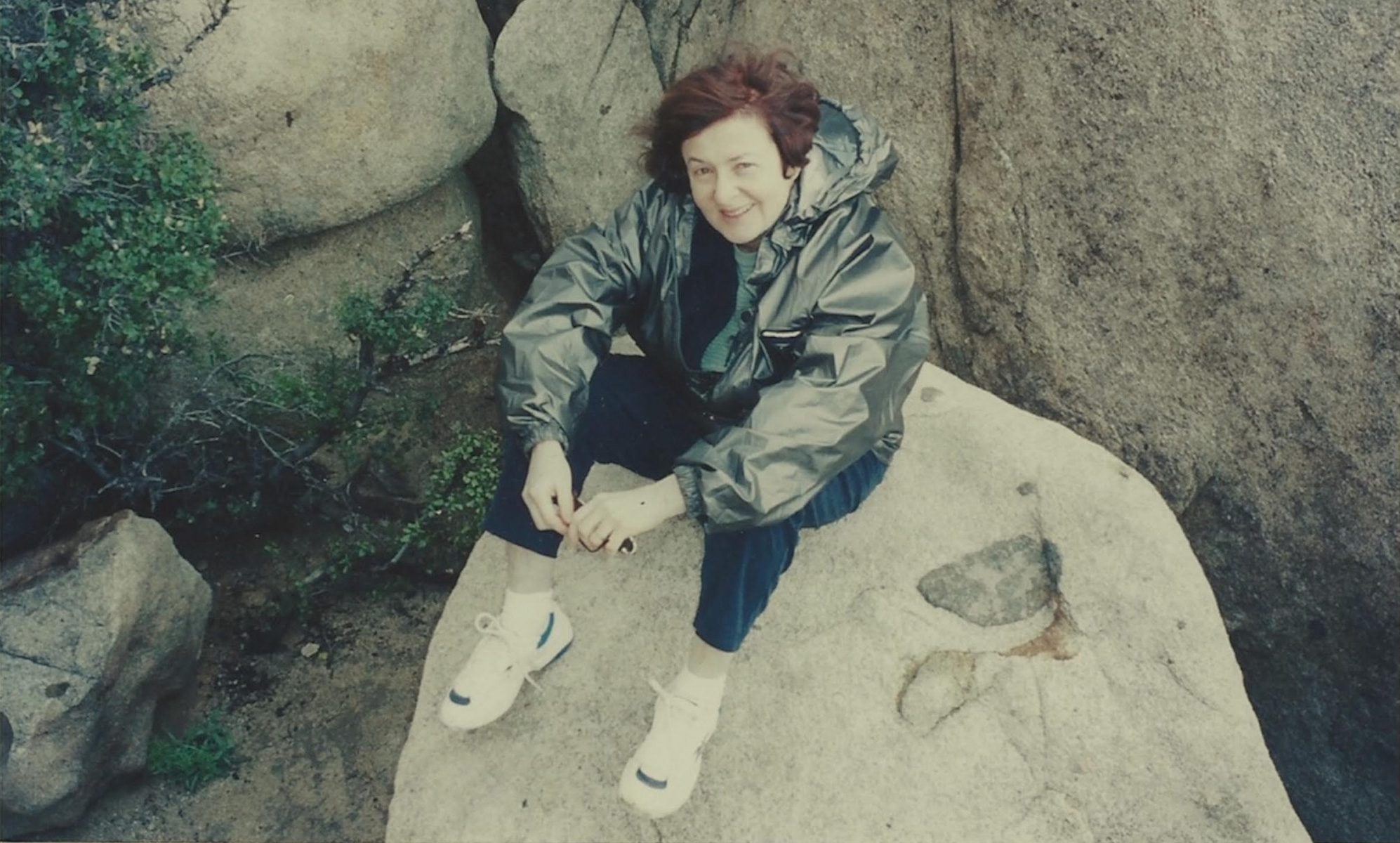“The Power of Other Voices in Creative Nonfiction”
Assay, Fall 2023
“Creative Nonfiction, especially in first person, puts a human face on history in ways that most history books do not. Rather than make universal claims—This is what happened—the writer says, “This is the world as I experienced it.” If done well, readers will follow the I into that world of people and events they may not have considered before, confronting issues, even hot button issues, they may have avoided. Personal stories, well-told, have the power to cross boundaries of difference and discover what we have in common, which leads to more understanding and more empathy for those unlike ourselves.” Read more…
“My Tante Hilda”
Ploughshares, Winter 2022-2023
“My Tante Hilde lived for over fifty years in a moshav across the road from an Israeli Arab village north of Acre. After every war, suicide bombing, and assassination, she would shake her head and say, “If it weren’t for the leaders, this wouldn’t happen!” She was talking about what she knew personally: the Arab families whose weddings she attended; the Arab boys who rode horseback with her son, Mordechai, into the Galilean hills; the man, Salach, who worked in and later managed the moshav’s dairy barn. During the Six Day War in 1967, as the radio blared warnings of Arab uprisings, Salach showed up as usual.” Read more…
When the Nazis came, not everyone divided neatly into ‘good’ neighbors and ‘bad’
The Boston Globe, April 8, 2021
“His letter came from South Australia, out of the blue. He wanted to thank me for my book about Christian and Jewish neighbors in the tiny German village of Rexingen, where my father’s family was from. ‘Your father was right,’ his letter assured me, ‘we all got along before Hitler.'” Read more…
“The Revolving Room”
Good Neighbors, Bad Times Revisited, University of Nebraska Press, March 2021
Mimi Schwartz is an award-winning essayist and nonfiction writer who has addressed some of our thorniest issues. In this excerpt from the book, she explores what happens when two friends land on opposite sides of history—and try to talk about it. Read here…
“My Twice-Told Tale: Why I Wrote Good Neighbors, Bad Times Revisited“
Women Writers, Women[‘s] Books, March 2021
“When I was growing up Jewish in Queens, New York after World War II, I was taught that America was a Melting Pot. And if I jumped right in, I could be like everyone else—even if my parents, who were refugees from Hitler’s Germany, said ‘moder’ and ‘fader’ instead of ‘mother’ and ‘father’ and ate liverwurst sandwiches, never peanut butter and jelly. If my friends didn’t care, that’s what mattered.” Read more…
“The Coronation of Bobby”
Creative Nonfiction, Issue #55
“We each have different versions of ourselves, depending on the story. There’s one of me at camp, crying in the bathroom all night so my bunkmates wouldn’t see me homesick. Another time, I was a bully, putting a frog in a sad girl’s bed. And there’s the brave me who jumped off Split Rock Gorge four years straight until, at age twelve, a cowardly me stared too long at the rocks thirty feet below and backed away.'” Read more…
“Fix-it Fantasy”
Persimmon Tree, December 2018
“When you’re married for fifty years to a man who fancies himself Mr. Fix-it, you don’t learn how to hang pictures, unclog dehumidifiers, or replace toilet seats. So when, after a weekend of guests that included two uber-bathroom-going toddlers, you discover that your toilet seats now roll like ships on high sea, you need to do something.” Read more…
“In the Land of Double Narrative”
Tikkun, May 13, 2011
“We are in the Olive Room of the King David Hotel in Jerusalem for a meeting with two history teachers — an Israeli and a Palestinian — who have written a double narrative of this land. The Israeli, Eyal Naveh, in his open-necked shirt, has a casual toughness you find in many Israelis over sixty, yet with keen, blue-grey eyes that are empathetic despite having fought seven wars to defend his right to stand here.” Read more…
“Close Call”
Ninth Letter, featured essay
“Last time, I considered myself lucky. I told the judge that I live in Princeton, am a writer and professor, and my mother had been robbed at gunpoint in a parking garage—and heard, “Thank you for your services #6.” End of jury duty.” Read more…

